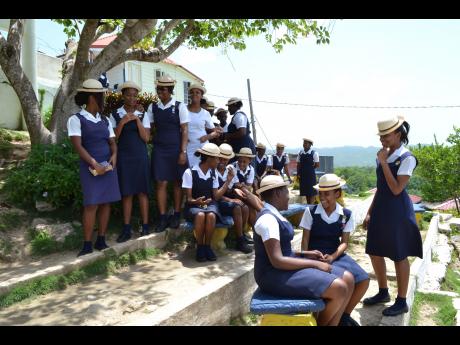What next after graduation?
Thousands of Jamaican teenagers, the majority of them between 16 and 18 years old, have now completed their Caribbean Secondary Education Certificate (CSEC) exams. Several thousands will go on to sixth form in September; however, most will not.
If for no other reason, the various sixth forms across the country simply cannot accommodate the number of students who will graduate from the system after five years of secondary education, qualified or not.
A significant number will be uncertain as to what it is they really want to do. Some will get involved in summer programmes, including preparation for resits next January. Yet others will seek out jobs, while they delay further studies. Others will go on to the various teachers' colleges and universities. But, for the thousands of teenagers and their parents/guardians who are in limbo, it begs the question, "After graduation, what next?"
If you are an anxious parent who's uncertain about what to do come September, The Gleaner will introduce you to, and explain some of the options available to you, including the various institutions and programmes that you can access.
Recognising the gaps/shortcomings in the system, the Ministry of Education has moved to ensure that suitable options are available to these graduating students.
According to director in the ministry, Dr Grace McLean, there are a range of opportunities offered by both the ministry and its affiliates. The institutions include the HEART-Trust-NTA, the Career Advancement Programme (CAP) for grades 12 and 13 students, and the National Youth Service (NYS). The HEART-Trust is taking a lead role in the implementation process and the options run the gamut from an apprenticeship programme to career advice. School leavers are also encouraged to take part in volunteerism.
... Education ministry setting up grade 11 database
Director in the Ministry of Education, Dr Grace McLean, said a grade 11 database has been established and is being used to contact students regarding the opportunities that are available to them after graduation.
She said career fairs are currently being conducted in each region to present opportunities. Additionally, the education ministry is currently running advertisements for all its programmes.
"Students are being guided through the Career Development Unit of the HEART Trust-NTA, as well as through the Guidance and Counselling Committee in the ministry in its six regional offices," Dr McLean added.
She explained that for those students who do not go on to sixth form, the CAP for grades 12 and 13 students is available. The education ministry expanded the CAP in September 2014 to some 6,000 sixth-form students to pursue both academic and vocational certification. CAP is an initiative of the Government through the Ministry of Education. It is a response to the large number of learners who complete secondary-level education without any formal certification and who have not matriculated to post-secondary level education or work. The focus is on providing opportunities for all learners between 16 and 18.
The CAP Programme for sixth-form students:
- Offered in high schools and community colleges that have a registered and established sixth-form programme.
- Includes a skill component based on course offerings within particular institutions.
- Programmes offered include hospitality, tourism, information communication technology, commercial, construction, agriculture and health services.
- CAP includes a technical-option designed for students who choose technical oriented vocations.
- General option for students who need further education and training.



